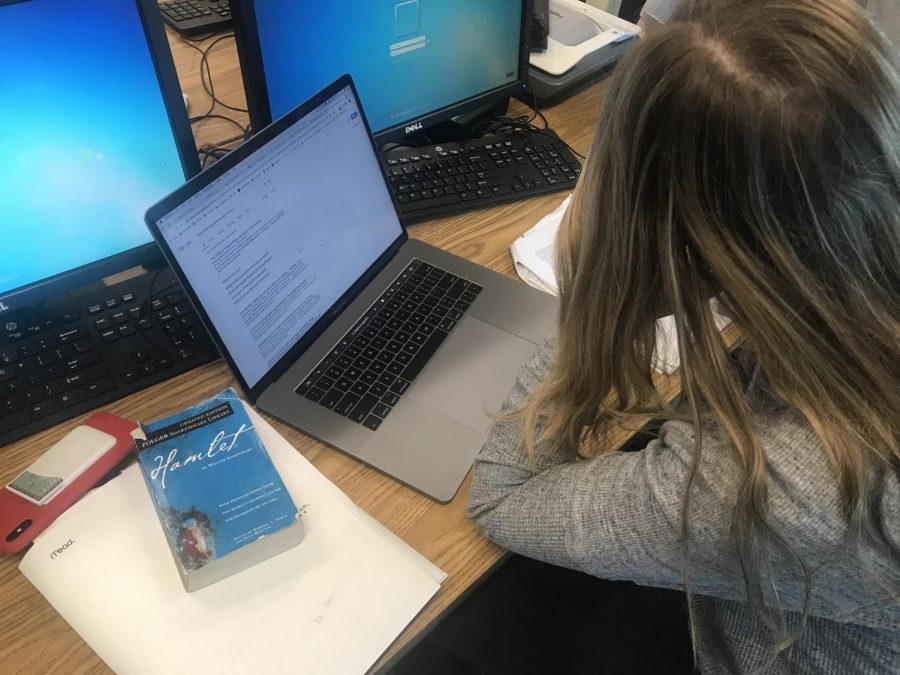Homework volume does not correlate with rigor
A Staples High School senior works to complete hours of homework. Stanford University researchers identified between 90 and 150 minutes as the “optimal” amount of homework in 2014.
At higher levels of certain courses, difficulty of content increases slightly but volume of homework increases dramatically. However, homework quantity does not correlate with academic rigor.
Of course, some students override into high-level classes without the necessary foundation for success. But, in most cases, students take AP and honors-level classes in areas in which they demonstrate particular skill. These students should receive more difficult content rather than more time-consuming homework. Since they have already mastered the basics of a given subject area, advanced students should explore complex ideas that challenge them intellectually.
I know from first-hand experience that assigning hours of homework taxes students. This phenomenon exists outside of Staples High School as well. In fact, of teenagers surveyed by the American Psychological Association in 2013, 83 percent called school “a somewhat or significant source of stress” and 10 percent reported “receiving lower grades than they are capable because of stress.”
Stress and exhaustion fit hand-in-hand. Unsurprisingly, my peers and I lose sleep over our workloads. More often than not, we understand the course material, but we cannot finish our homework in time to get the amount of sleep we need each night.
Correspondingly, researchers at Stanford University found in 2014 that homework overload negatively impacted students at high-performing high schools in upper middle-class communities. The study linked more than the “optimal” amount of homework––between 90 and 150 minutes per night––with increased stress, health issues and less time to spend with loved ones or pursuing extracurricular activities.
Teachers of AP and honors-level classes hold the power to positively affect students’ wellbeing and intellectual achievement. When it comes to homework, they should prioritize quality over quantity.



















































